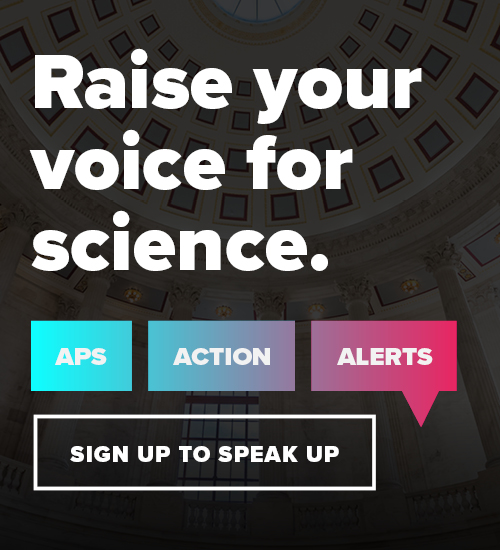How to Advocate for Science Learning Module
This course, written by scientists for scientists, is designed to help researchers get started as advocates. Scientists are experts in their fields who can speak with authority on what is needed to promote scientific advancement. But scientific training does not generally involve advocacy skills. This online course will help scientists at all career stages develop the professional skills necessary to identify and explain the issues that are important to them and communicate with their elected officials and agency representatives about those issues. Written by members of the APS Science Policy Committee and the society’s professional staff, this course provides the scientists’ perspective on taking that first step into advocacy.
Upon completion of this learning module, participants should be able to:
- Understand why advocacy for science is important.
- Identify their elected federal representatives and how to engage with them, including by calling, writing and meeting.
- Be able to explain their research in a manner accessible to non-specialists.
- Develop a basic understanding of U.S. legislative and policy processes.
- Be able to access advocacy resources and develop a concise set of talking points to guide discussions.
- Have the tools to navigate a discussion on a potentially sensitive or controversial topic.
The How to Advocate for Science Learning Module is free to access for APS members and $35 for non-members. Explore the benefits of APS membership and join the Society. Students can join APS for just $25 per year.
- a broad discussion of why advocacy for science is important
- does what you say in a meeting/email/phone matter?
- how a bill becomes a law
- the budget and appropriations cycle with information about how research agencies get funding
- policy making at federal agencies, how to find and respond to RFIs of relevance
- how to identify and contact your elected officials and committee structure and why it is important
- identifying an issue and determining effective timing for advocacy
- developing talking points
- talking about your science with a non-specialist
- how to schedule a meeting
- what to expect in a meeting
- what to do if a contentious issue comes up
- following up with an office after a meeting
- how does information make it from a meeting to the member of Congress?
- other ways to advocate
- sign up for APS action alerts
- join your state or regional APS chapter to participate in ongoing local advocacy with physiologists in your area
- find resources for careers in science policy
Stay Connected
Get Advocacy Alerts and the latest news by connecting with the Society’s Science Policy Team around the web


